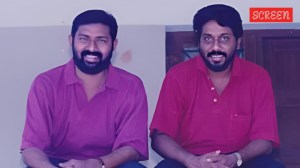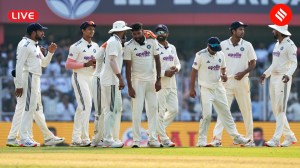‘The DNA of Ranbaxy lives on… We have a perfect fit’
Israel Makov’s tenure as chairman of Sun Pharmaceutical Industries has seen three acquisitions — URL Pharma, Dusa Pharmaceutical and now Ranbaxy Laboratories.
By: Pallavi Ail
Israel Makov’s tenure as chairman of Sun Pharmaceutical Industries has seen three acquisitions — URL Pharma, Dusa Pharmaceutical and now Ranbaxy Laboratories — and a joint venture to develop therapies for ocular diseases with US-based Intrexon. A jovial person who calls his journey with Sun “thrilling and exciting”, Makov is looking forward to more excitement. In an interview with Pallavi Ail, Makov discussed the genesis of the Ranbaxy deal and strategies for growth. Excerpts:
You were with Teva for about 17 years. How was it being with a world leader?
Teva’s major challenges were globalisation and profitable growth. M&As came out of it. The challenges here are the same — globalisation and continue profitable growth.
Why Ranbaxy?
We had identified Ranbaxy. Normally, we wait for an opportunity for something like this, but Ranbaxy was not on the block. We initiated a call to Daiichi Sankyo and once they decided they were going to entertain our request, we moved in a friendly manner and in a very short time.
Now, why we identified Ranbaxy — that’s easy. First, it brought us better global reach in emerging markets and gave us the leading position in India. Instead of being No.1 in seven therapeutic categories, we are now going to be No.1 in 13. We are also getting additional product lines like antibiotics and over-the-counter medicines. We never made antibiotics; we bought them. The acquisition has also enhanced our position in the US. So, what we have is compatibility in terms of geography and product lines.
Secondly, we saw a lot of value in Ranbaxy. It used to be a very, very good company in the past. We believe the DNA of Ranbaxy is still there. Although the company is in a distressed situation, we think we will be able to help it get over these hurdles. So, it’s a perfect fit.
Ranbaxy offers you access to emerging markets and Western Europe. How important are these to Sun Pharma?
They are important because we want to expand our global reach. If you want to achieve profitable growth, you have to derive it from the growth of markets. Emerging markets are fast-growing markets for pharmaceutical companies. We are going to set a fantastic pace with the acquisition of Ranbaxy. In Europe, we have a small base. We want to expand it and the acquisition will help. The reason to acquire Ranbaxy was not Europe, but we get the fringe benefit of having an additional presence in Europe.
The acquisition has narrowed the gap between Sun and Mylan but there is still a considerable gap between Sun and Teva. A reason may be that both of them have innovative products. How does Sun plan to innovate?
First of all, we have a sister firm which is an innovator…
Yes, you have SPARC. But, they are developing products under the 505(b) (2) platform.
Doesn’t matter, it’s still an innovator. I don’t think innovation strengthened the generic business of Teva or Mylan. So, we don’t need it for the generic business. But we are going to innovate drugs. For example, we acquired Dusa. We are going to broaden our specialty products line. Innovation is a broad term – there is innovation, there is breakthrough innovation and we are also going to enter into innovation but we are not going to be a Pfizer or Merck of the world. We are going to do it our own style.
How will Sun deal with Ranbaxy’s issues with good manufacturing practices in the US? Will you talk to the US FDA?
First of all, until the end of this year when the deal closes, Ranbaxy is Ranbaxy and Sun is Sun: We cannot intervene. But we will try to help as far as we can help. And once we take over, of course, we will help even more through our knowledge and our capabilities to help to get over this situation.
How does the deal benefit Sun Pharma in the Indian market?
If you really reached a situation where you need certain therapeutic categories – it will put more responsibility on Sun to bring more products to the market and to serve the market. As a leader, we have to serve. FE






- 01
- 02
- 03
- 04
- 05

























